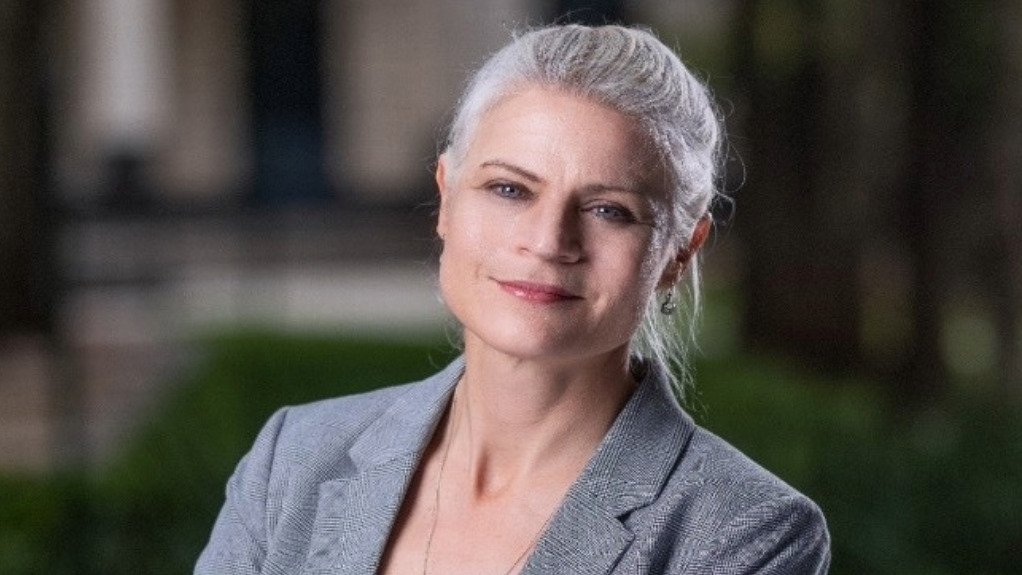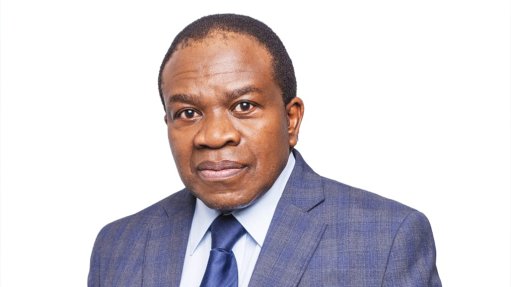A department of govt efficiency would not be a bad idea for South Africa, Weimar suggests
Following the unprecedented Budget speech debacle that played out on February 19, Nedbank chief economist Nicky Weimar has advocated for creative and ruthless cutting of wasteful government expenditure rather than more tax hikes.
Speaking at the Nedbank headquarters in Sandton on February 21, she said that, if she were in charge of the South African Budget, she would focus on finding efficiencies and real cuts in government spending, which could include re-evaluating the size of the civil service and even going so far as to restructure provincial governments, among other things.
“We have a bloated Cabinet. So [cutting that down] is an option. We also have very bloated structures. We've got nine provinces. Do we need nine provinces? There are many questions you can ask if you're going to think out of the box. You can literally start from scratch if you want to save money.
“We don't have an efficient government and I think we all know that, and that should be their emphasis. In the process, they could free up a lot of funds, and they could maybe have a more material impact on the lives of South Africans,” she said.
Weimer likened the idea to what the Department of Government Efficiency, run by billionaire businessperson Elon Musk, was doing in the US – cutting wasteful expenditure by doing a ruthless line-by-line audit of the entire government structure, going so far as to even eliminate entire departments if needed.
The goal would be to free up funds and resources to have a more meaningful impact on the lives of South Africans rather than just increasing the tax burden to fund consumptive spending.
“Government can only slow spending. They can use the money they've got more effectively and do a more sensible Elon Musk in South Africa. It’s not a bad idea. Spend that money more effectively. Make sure it reaches the people that truly need it, and it meaningfully changes their lives. But spend more to drive growth? No, the funds are simply not there to do it,” Weimar said.
A key point of contention, which resulted in the Budget being postponed until March 12, was that Finance Minister Enoch Godongwana had attempted to push through a two percentage point increase in value-added tax (VAT) – a proposal that was roundly rejected by many Government of National Unity partners.
Rather than raising VAT, Weimar said it would be smarter to consider raising selected indirect taxes such as excise duties and sin taxes more than the rate of inflation. She said this approach would spread the tax burden more broadly.
Her rationale is that, although South Africa has one of the lowest VAT rates among emerging markets, it has one of the highest income tax rates. Emerging markets typically rely more on broad-based VAT to generate tax revenue rather than high income taxes.
However, South Africa’s situation is reversed, with the wealthy minority carrying the majority of the tax burden. Increasing VAT would be politically very difficult to implement in South Africa, as it would have a large impact on low-income individuals.
Instead, she suggested government focus on raising selected indirect taxes like excise duties and sin taxes at a pace higher than inflation. This would spread the tax burden more broadly without the political challenges of a VAT increase.
The goal, she said, would be to generate government revenue growth at a pace below the inflation rate.
Aside from reducing waste and streamlining operations, the State could work harder to ensure that funds are directed to areas that have the greatest impact.
She emphasised prioritising spending on critical infrastructure projects, social services, and initiatives that directly benefit citizens while cutting non-essential or inefficient expenditures – such as the public sector wage bill. Implementing structural reforms to boost economic growth could expand the tax base and generate more revenue without raising tax rates.
The key, she said, was to find a balanced approach that consolidated the fiscal position through spending discipline while still investing in programmes and services that improved the lives of South Africans.
TRUMP
Addressing the ongoing tensions between South Africa and the US with the advent of US President Donald Trump’s disruptive economic tactics, Weimar noted the potential long-term economic implications of the Trump administration's policies on tariffs, immigration and trade wars.
These include increased inflation owing to the direct inflationary impact of tariffs, which can lead to a dynamic trade war and escalating inflation. Tighter immigration control and mass deportations in the US could also contribute to inflation by restricting labour supply and putting upward pressure on wages.
These policies could subdue US economic growth in the medium to longer term, as the short-term boost from tax cuts and deregulation were offset by the inflationary and interest rate impacts, Weimar explained.
She said the US economy may outperform the rest of the world in the short term, but the long-term effects of these policies could lead to a moderation in US growth.
Overall, these policies posed significant downside risks to global economic growth and, in Weimar’s opinion, could lead to a repeat of the stagflation experienced in the 1970s and 1980s.
Weimar explained that South Africa’s best strategy right now was to maintain a low profile and avoid responding to provocations in the global environment for several reasons.
Critically, responding with knee-jerk reactions or insults is likely to be self-defeating, as South Africa is up against a much stronger opponent.
She suggested that South Africa could learn from Mexico's approach, where the country did not immediately respond to provocations but instead presented its existing efforts as a response and later returned to the negotiation table.
She advised that, in the current uncertain global environment, it would be best for South Africa to remain discreet and avoid fuelling tensions through direct confrontation or retaliation.
The key would be to use diplomatic back channels and avoid getting drawn into an escalating war of words, which would be unlikely to benefit South Africa in the current global political climate.
Article Enquiry
Email Article
Save Article
Feedback
To advertise email advertising@creamermedia.co.za or click here
Press Office
Announcements
What's On
Subscribe to improve your user experience...
Option 1 (equivalent of R125 a month):
Receive a weekly copy of Creamer Media's Engineering News & Mining Weekly magazine
(print copy for those in South Africa and e-magazine for those outside of South Africa)
Receive daily email newsletters
Access to full search results
Access archive of magazine back copies
Access to Projects in Progress
Access to ONE Research Report of your choice in PDF format
Option 2 (equivalent of R375 a month):
All benefits from Option 1
PLUS
Access to Creamer Media's Research Channel Africa for ALL Research Reports, in PDF format, on various industrial and mining sectors
including Electricity; Water; Energy Transition; Hydrogen; Roads, Rail and Ports; Coal; Gold; Platinum; Battery Metals; etc.
Already a subscriber?
Forgotten your password?
Receive weekly copy of Creamer Media's Engineering News & Mining Weekly magazine (print copy for those in South Africa and e-magazine for those outside of South Africa)
➕
Recieve daily email newsletters
➕
Access to full search results
➕
Access archive of magazine back copies
➕
Access to Projects in Progress
➕
Access to ONE Research Report of your choice in PDF format
RESEARCH CHANNEL AFRICA
R4500 (equivalent of R375 a month)
SUBSCRIBEAll benefits from Option 1
➕
Access to Creamer Media's Research Channel Africa for ALL Research Reports on various industrial and mining sectors, in PDF format, including on:
Electricity
➕
Water
➕
Energy Transition
➕
Hydrogen
➕
Roads, Rail and Ports
➕
Coal
➕
Gold
➕
Platinum
➕
Battery Metals
➕
etc.
Receive all benefits from Option 1 or Option 2 delivered to numerous people at your company
➕
Multiple User names and Passwords for simultaneous log-ins
➕
Intranet integration access to all in your organisation





















